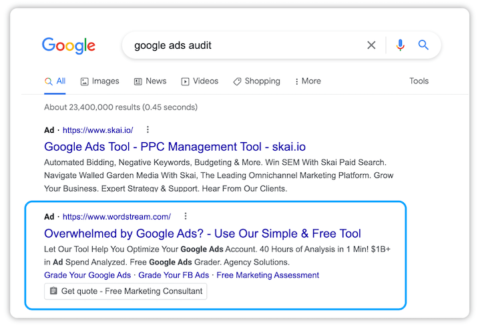
PPC Advertising Done Right for Quick Results
PPC (Pay-Per-Click) advertising is a popular and effective online advertising model that allows businesses to drive targeted traffic to their websites. Unlike organic search results, PPC ads appear at the top of search engine results pages, providing immediate visibility to potential customers. However, to achieve quick and desirable results, it is important to implement PPC advertising strategies correctly.
1. Set Clear Goals
The first step in any successful PPC advertising campaign is to define your goals. Are you aiming to increase brand awareness, drive sales, generate leads, or boost website traffic? Clearly stating your objectives will help you develop a focused strategy and choose relevant keywords and ad formats.
2. Thorough Keyword Research
Keyword research is the foundation of PPC advertising. Conducting comprehensive keyword research will ensure that your ads are targeting the right audience. Use keyword research tools to identify high-volume and relevant keywords with low competition. This will help you create ad groups and ad copy that resonate with your target audience.
3. Crafting Compelling Ad Copy
Compelling ad copy is key to capturing the attention of potential customers. Use words and phrases that are relevant to your audience and highlight the unique selling points of your products or services. Including a call-to-action (CTA) within the ad encourages users to take immediate action, maximizing the effectiveness of your campaign.
4. Effective Landing Pages
Once users click on your PPC ads, they should be directed to a dedicated landing page that aligns with their search intent. Design your landing pages to be visually appealing, easy to navigate, and focused on conversion. Clearly state the benefits and features of your products or services, and include a prominent CTA to encourage users to take the desired action.
5. Track and Analyze Performance
Tracking and analyzing the performance of your PPC campaigns is essential for optimizing results. Use conversion tracking tools like Google Analytics to monitor key metrics such as click-through rates, conversion rates, and cost per acquisition. This data will help you identify areas of improvement, fine-tune your campaigns, and allocate resources effectively.
6. A/B Testing
Continuously running A/B tests allows you to experiment with different ad variations and landing page elements to determine which combination drives the highest conversions. Test different headlines, ad copy, visuals, and CTAs to identify what resonates best with your target audience. Implement changes based on conclusive data to optimize your PPC campaigns.
7. Ad Scheduling and Budget Control
PPC advertising platforms offer the ability to schedule your ads to only appear during specific times or days of the week. Analyze your audience's behavior and preferences to determine the optimal times to display your ads. Additionally, set daily or monthly budgets to have control over your spending and prevent unexpected expenses.
8. Geo-Targeting
Only display your PPC ads to users in specific geographic locations that are relevant to your business. This ensures that your ads reach the right audience and eliminates unnecessary costs of targeting users outside your target market.
9. Utilize Remarketing
Remarketing allows you to target users who have previously visited your website but did not convert. It is an effective strategy to re-engage with potential customers who have already shown interest in your products or services. Create tailored ads that remind them of what they missed and provide incentives to encourage them to return and complete the desired action.
10. Ongoing Optimization
PPC advertising is not a set-it-and-forget-it strategy. Regularly monitor the performance of your campaigns and make adjustments accordingly. Continually refine your keywords, ad copy, landing pages, and targeting settings based on the performance data you gather. This ongoing optimization ensures that your PPC campaigns consistently deliver quick and positive results.
Conclusion
PPC advertising, when executed correctly, can be a highly efficient marketing tool delivering quick results for your business. By setting clear goals, conducting thorough keyword research, creating compelling ad copy, optimizing landing pages, tracking performance, and regularly refining your strategy, you can harness the power of PPC advertising to drive targeted traffic, increase conversions, and boost your online presence.